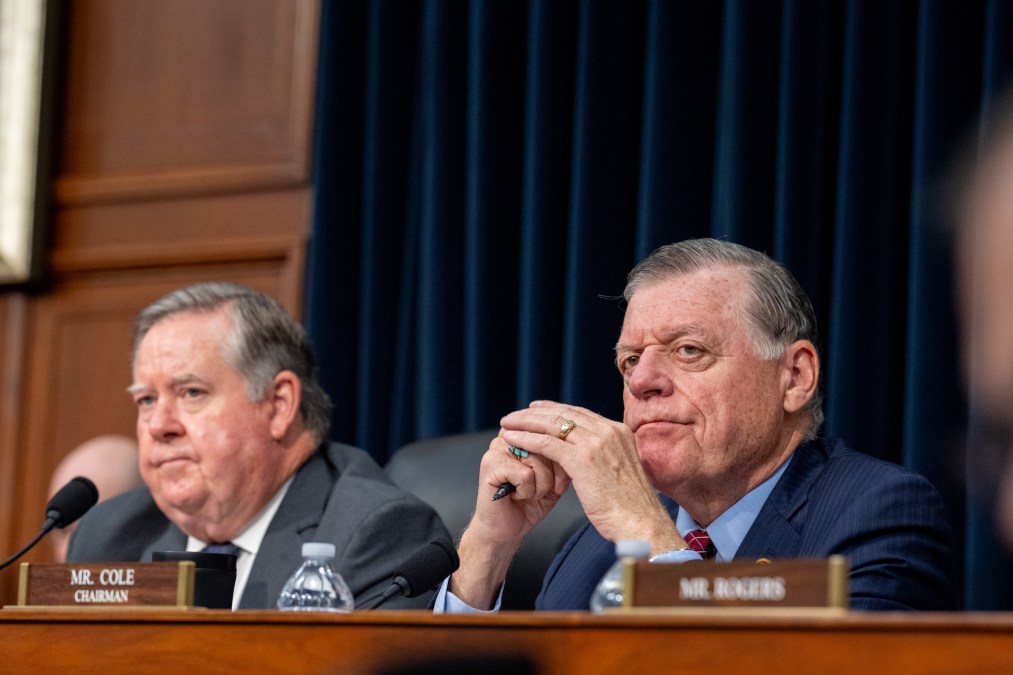House appropriators propose more than $1.3B for DIU, other tech acceleration initiatives

Legislation released by the House Appropriations Committee on Tuesday calls for large funding increases over the Pentagon’s budget request to help the Defense Innovation Unit transition promising technologies to troops.
A fiscal 2025 defense appropriations bill, which is scheduled to be marked up Wednesday by the House Appropriations Defense Subcommittee, would provide $833 billion in total discretionary funding for the department, including more than $1.3 billion for DIU and “select Defense-Wide innovation efforts to deliver capabilities from nontraditional sources, including small and medium-sized businesses,” according to a summary of the legislation.
DIU, which is headquartered in Silicon Valley and has offices in other commercial tech hubs around the United States, works to bring additional vendors into the DOD’s innovation ecosystem. Under Director Doug Beck, the unit has embedded personnel at key combatant commands and launched “DIU 3.0,” with the goal of scaling technologies more broadly across the military.
The organization is also supporting the Pentagon’s Replicator initiative, which aims to field thousands of “attritable autonomous” systems across multiple domains by August 2025 to help the U.S. armed forces counter China’s military buildup.
The appropriations bill released Tuesday includes a $220 million funding increase for DIU’s fielding of capabilities aimed at “addressing the most pressing combatant commander priorities,” and a $240 million boost for DIU’s fielding of technologies with programming commitments from the military services, according to the summary.
It calls for an additional $45 million for a classified facility expansion that would allow for “early digital runs” of new technologies and help obtain clearances for commercial companies and non-traditional defense sources.
Lawmakers want to “increase flexibility for DIU Fielding in exchange for greater transparency with Congress,” according to the summary of the bill.
The approximately $900 million in total funding for DIU would be a major bump over the Pentagon’s fiscal 2025 request, which called for only $110 million for the unit.
This is another example of lawmakers trying to provide much more money to the organization than the Defense Department sought. For fiscal 2024, lawmakers appropriated $946 million for DIU, which was $842 million above its budget request.
The legislation would also provide $400 million for the department’s APFIT program to help bridge the so-called valley of death in the acquisition system and “transition cutting-edge capabilities to the warfighter in an accelerated timeline,” according to the summary. The term “valley of death,” in DOD parlance, refers to the inability to transfer promising tech from research and development into large-scale production and fielding.
Congress allocated $300 million for APFIT in fiscal 2024.
“The benefits of this pilot program will be to deliver war-winning capability earlier than scheduled, while contributing to the viability of small business and nontraditional defense contractor vendors,” the Pentagon said in an April release about the effort.
Meanwhile, House appropriators are proposing $126 million for the Office of Strategic Capital, which aims to connect companies developing tech in support of national security with organizations that can help fund and sustain their growth long enough to reach wider production.
Separately, $732 million would go toward accelerating the department’s “digital transformation of business practices” through the Chief Digital and AI Office (CDAO).
The CDAO intends to proliferate artificial intelligence and other digital tools across the department, from back offices to warfighters at the tactical edge. It’s playing a key role in the Pentagon’s Combined Joint All-Domain Command and Control (CJADC2) initiative, which aims to better connect the platforms, sensors and data streams of the U.S. military and key international partners to improve decision-making, operational effectiveness and efficiency.
“In a resource- and time-constrained environment, my top priority for the Fiscal Year 2025 Defense Appropriations Bill is to strengthen our military’s position against any threat presented by China. To accomplish this, I have once again increased investments in programs that fuel and field innovative technologies, including the Defense Innovation Unit (DIU) and the Accelerate the Procurement and Fielding of Innovative Technologies (APFIT) initiative,” House Appropriations Defense Subcommittee Chairman Ken Calvert, R-Calif., said in a statement.
The defense appropriations bill has to clear many hurdles before becoming law, including passage by the House Appropriations Committee and the full House. The House version must also be reconciled with the Senate version through a conference process, and the reconciled version must be approved by both chambers of Congress and signed by the president.






